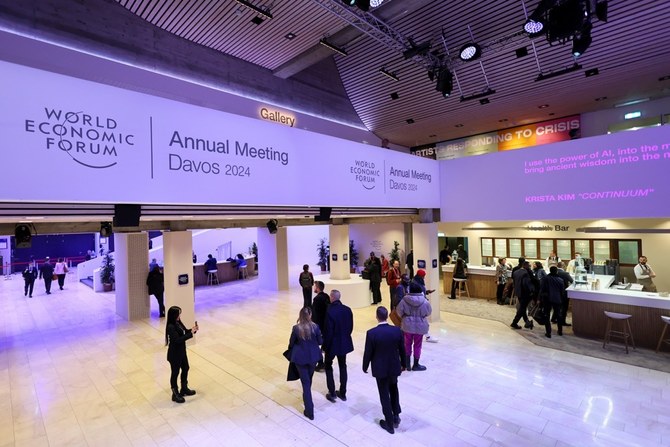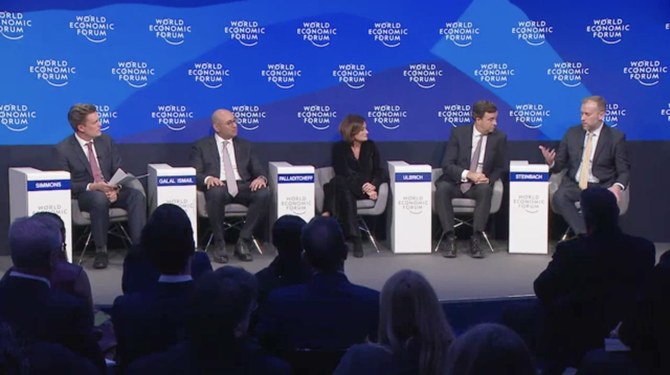DAVOS: World leaders in politics and business gathered in the Swiss mountain town of Davos on Monday as the five-day annual meeting of the World Economic Forum got underway.
The meeting comes amid soaring geopolitical tension across the world. Wars in Gaza, Sudan and Ukraine continue to escalate, and Houthi attacks on shipping in the Red Sea threaten global trade.
Other major concerns this year are the rise of artificial intelligence, climate change, the job market and the ever-changing digital landscape.
“An unstable global order characterized by polarizing narratives and insecurity, the worsening impacts of extreme weather and economic uncertainty are causing accelerating risks – including misinformation and disinformation – to propagate,” said Saadia Zahidi, managing director of the World Economic Forum.
“World leaders must come together to address short-term crises as well as lay the groundwork for a more resilient, sustainable, inclusive future.”
Top politicians who will speak at this year’s forum include US Secretary of State Antony Blinken; Iran’s Foreign Minister Hossein Amir-Abdollahian; Qatari Prime Minister Mohammed bin Abdelrahman Al-Thani; French President Emmanuel Macron; Jordanian Prime Minister Bisher Al-Khasawneh; Ukranian President Volodymyr Zelensky; and Chinese Premier Li Qiang.
Meanwhile global executives are increasingly worried about the long-term viability of their businesses, a pre-Davos survey by the auditor PricewaterhouseCoopers suggests. About 45 percent of more than 4,700 chief executives surveyed did not believe their businesses would survive the next 10 years.
“There’s the 55 percent who think they don’t have to change radically, and I would argue that’s a little naive because the world is changing so fast around them,” PwC boss Bob Moritz said.






















